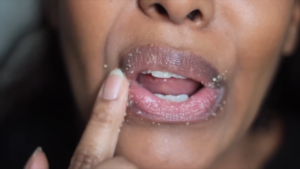Stress and fatigue are significant contributors to premature skin aging, causing wrinkles, dullness, and loss of elasticity. When the body experiences chronic stress, it releases cortisol, a hormone that breaks down collagen, a protein that keeps skin firm and youthful. Additionally, fatigue can weaken the immune system, making the skin more susceptible to damage. By managing stress and ensuring adequate rest, it is possible to protect the skin from the adverse effects of aging, preserving a youthful and vibrant appearance.
The connection between stress, fatigue, and skin aging cannot be overlooked. As our lifestyle becomes busier, the impact on our skin becomes more pronounced. Chronic stress leads to an overproduction of free radicals, which accelerate the aging process. Moreover, lack of sleep deprives the skin of the opportunity to repair itself, leading to early signs of aging. Adopting strategies to reduce stress and improve sleep quality is essential for maintaining healthy, youthful skin.
Understanding the Impact of Stress on Skin Health
Stress is a powerful factor that can significantly affect skin health. It triggers the release of cortisol, which leads to collagen breakdown and increases oil production, causing acne and premature wrinkles. Understanding this connection helps in addressing skin aging from the root cause. By managing stress effectively, you can maintain healthier skin and delay the aging process, preserving your youthful glow and preventing unwanted skin issues.
Reducing stress levels is not only beneficial for your overall well-being but also for your skin’s appearance. Chronic stress accelerates the aging process by reducing the skin’s ability to repair itself. Regular stress management techniques, such as meditation, exercise, and adequate sleep, play a crucial role in keeping your skin vibrant and youthful. Incorporating these practices into your daily routine can significantly minimize the negative effects of stress on your skin, ensuring a long-lasting, radiant complexion.
The Role of Fatigue in Accelerating Skin Aging
Fatigue weakens the skin’s natural defense mechanisms, making it more susceptible to environmental damage. When the body is constantly tired, it fails to repair and regenerate skin cells effectively, leading to early signs of aging. Understanding the role of fatigue in skin aging is crucial in preventing premature wrinkles and dullness. By ensuring adequate rest and maintaining a balanced lifestyle, you can enhance your skin’s natural resilience and maintain a youthful appearance.
Chronic fatigue deprives the skin of essential nutrients and oxygen, resulting in a dull complexion and fine lines. The lack of sleep disrupts the skin’s repair process, leading to visible signs of aging. Prioritizing sleep and reducing fatigue can reverse these effects, allowing the skin to heal and rejuvenate overnight. Incorporating healthy sleep habits and reducing overexertion are key steps in combating the aging process, ensuring that your skin remains smooth and radiant.
1. Managing Stress to Protect Skin Health
Stress management is vital for maintaining youthful skin. Chronic stress increases cortisol levels, leading to skin issues like acne, dryness, and wrinkles. By incorporating relaxation techniques such as meditation, yoga, or deep breathing, you can lower cortisol levels and protect your skin. Additionally, regular physical activity can help reduce stress and improve circulation, giving your skin a healthy, glowing appearance. Effective stress management is a key factor in slowing down the aging process.
Balanced nutrition also plays a significant role in managing stress and promoting skin health. Consuming foods rich in antioxidants, vitamins, and minerals can combat the effects of stress on the skin. A diet that includes fruits, vegetables, and omega-3 fatty acids helps reduce inflammation and oxidative stress, which can accelerate aging. By combining a healthy diet with stress management techniques, you can protect your skin from premature aging and maintain a youthful complexion.
2. Combating Fatigue for Better Skin Resilience
Getting enough sleep is essential for skin health. During sleep, the skin repairs and regenerates, helping to maintain its elasticity and smoothness. Lack of sleep can lead to increased signs of aging, such as dark circles, fine lines, and a dull complexion. To combat fatigue, establish a regular sleep schedule, create a relaxing bedtime routine, and avoid caffeine or screens before bed. Prioritizing sleep can significantly enhance your skin’s resilience.
In addition to sleep, staying hydrated is crucial for preventing fatigue-related skin issues. Dehydration can make your skin look tired, emphasizing fine lines and wrinkles. Drinking enough water throughout the day helps maintain skin elasticity and a youthful glow. Along with hydration, incorporating relaxation techniques before bed can improve sleep quality, reducing the impact of fatigue on your skin. Together, these practices ensure your skin remains firm, smooth, and youthful.
Protecting Your Skin from Premature Aging
Avoiding stress and fatigue is essential in preventing premature aging of the skin. By managing stress through relaxation techniques, regular exercise, and balanced nutrition, you can protect your skin from the damaging effects of cortisol and free radicals. Additionally, prioritizing sleep and hydration helps maintain the skin’s natural resilience, ensuring a youthful and radiant appearance. Embracing these practices can significantly reduce the signs of aging, keeping your skin healthy and vibrant.
Maintaining a youthful appearance goes beyond skincare products; it requires a holistic approach to health and well-being. By understanding the impact of stress and fatigue on your skin, you can make informed decisions to protect it from premature aging. Adopting a lifestyle that prioritizes mental and physical health, combined with a consistent skincare routine, is the key to preserving your skin’s youthful glow. Taking these steps will help you achieve and maintain a naturally radiant complexion.








